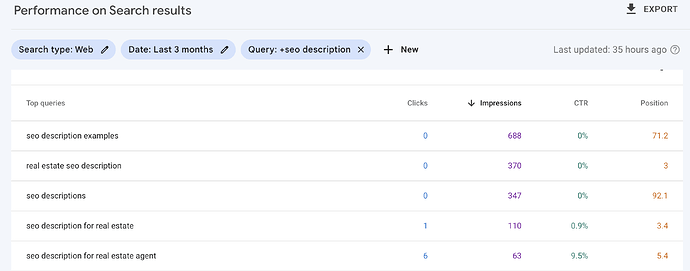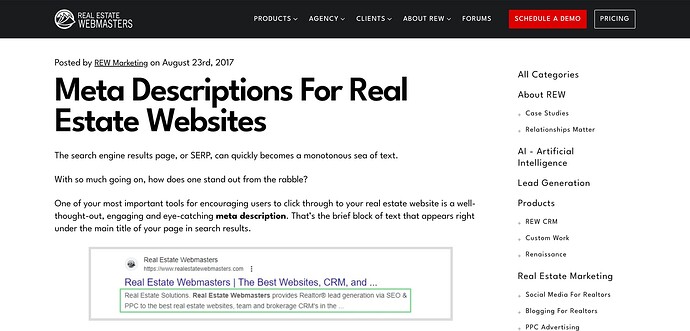Honestly, my “favourite” keyword research tool is Google Search Console
Here’s why:
All you need is enough authority to rank in the “top 100” in order to start getting “true impression data” and so instead of letting keywords dictate my content, I decide what kind of content I truly want for my consumers, I can write it, post it and then once it’s top 100, I can then determine which keywords have high volume and adjust content appropriately.
I also love that I can parse by region as well.
Doing it this way not only gives you feedback on the keywords you “were” going for, but helps you discover many keywords you didn’t know existed.
Here is a great example:
As you’ll see in the screenshot (sorted by impressions) there are several keywords that are ranking top five (but not #1) and then nowhere near the first page.
Those not on the first page are actually not real estate specific (they are too generic, we don’t want them) so that is by design.
But for those that are the first page, they ARE highly relevant to our business “real estate” and since we’re already within striking distance (recognizing we’ll likely only get clicks if we’re #1 these days) it might be worth going after these keywords with some intention.
Next, I do a search to see what page is ranking and it’s this one: Meta Descriptions For Real Estate | Optimize Your Meta Tags
What do I notice (anywhere we can improve?)
First - it’s not been updated since 2017 (needs a more recent update tag)
And when I look at some of the main elements (page title, H1 tag etc) they don’t include “SEO” in them when in fact the 2 top keywords are “real estate SEO descriptions”, “SEO description for real estate” and “seo description for real estate agent”
So next I’ll go update that page (since I’m here)
But I’ll also put this on Wes’s Radar to build out some support for that page - meaning he needs to create some keyword-specific (high value) forum posts that link back to those pages using the various anchor texts (high value is key, anchor text matters) and potentially a “related” (but not cannibalizing) blog post on descriptions.
For example, we could tie in our latest hot topic “AI” and do a blog post on best practices using AI to create meta descriptions.
Ok @WesMartin I’m updating that blog post - the rest is up to you 

